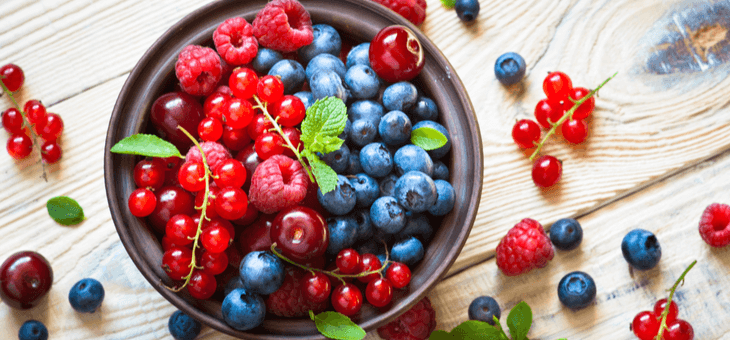If you love red wine and are looking to ease any accompanying guilt, we have good news. Research indicates that diets higher in flavonoids found in red wine, berries and some other fruits have been linked to longer life in men.
And for those diagnosed with Parkinson’s disease, the latest research shows that a higher flavonoid intake has been associated with a lower mortality rate in both sexes.
Read: Diet trumps drugs when it comes to anti-ageing measures
But before you head down to the cellar to crack open another bottle of cabernet sauvignon, a warning: correlation does not equal causation. What this means is that although researchers have identified a link between a higher intake of flavonoids and a reduce mortality rate, that does not necessarily mean flavonoids directly reduce that rate. For instance, those who take in more flavonoids may also have other healthy lifestyle diets and practices that lower their risk.
What are flavonoids?
Also known as bioflavonoids, flavonoids are plant chemicals found in many fruits and vegetables and have antioxidant properties, which have long been known to have health benefits. Flavonoids are partially responsible for the vivid colours in many of these fruits and vegetables and, indeed, the name is derived from the Latin flavus, which means yellow or blonde in colour.
You don’t like red wine or berries. How can you increase your flavonoid intake?
The good news is that, while berries, grapes and red wine are an excellent source, many other fruits and vegetables are high in flavonoids. Berries and red wine are high in a sub-group of flavonoids known as flavonols, and these are also found in tomatoes, lettuce, onions, kale, peaches and broccoli.
Read: The best and worst juices for your health revealed
Other flavonoid subgroups include flavon-3-ols (found in most teas, apples and cocoa products such as chocolate), flavones (parsley, red peppers, celery), flavonones (citrus fruits such as oranges and lemons), isoflavones (soy and some other legumes) and anthocynins (grapes, red wine, berries).
Should you drink more red wine?
The key here is that old chestnut, ‘moderation’. While red wine is a source of potentially beneficial flavonoids, it is obviously also an alcoholic drink, which should always be taken responsibly.
For those who have been diagnosed with Parkinson’s disease, which can affect balance, coordination and mobility, caution is advised. Dr Michael Okun, national medical adviser for the Parkinson’s Foundation and director of the University of Florida’s Norman Fixel Institute for Neurological Diseases in Gainesville, says “mixing wine and Parkinson’s is not always safe, as it can lead to injuries, usually related to falling”.
Read: Foods that will last for years
But, as illustrated above, there are many other sources of flavonoids that help to prevent or slow damage to cells, which may lead to diseases such as cancer. Flavonoids also reduce inflammation in the body, common in many chronic and neurodegenerative ailments such as Alzheimer’s or Parkinson’s disease.
Flavonoids are certainly good for our brain health, with studies showing diets high in fruits and vegies may slow cognitive decline and lower dementia risk. As little as three servings a week of berries or other flavonoid-rich foods may improve our odds of a longer life.
Have you found an increased intake of berries or red wine helpful? Which other foods have improved your health and wellbeing? Why not share your experience in the comments section below?
If you enjoy our content, don’t keep it to yourself. Share our free eNews with your friends and encourage them to sign up.

